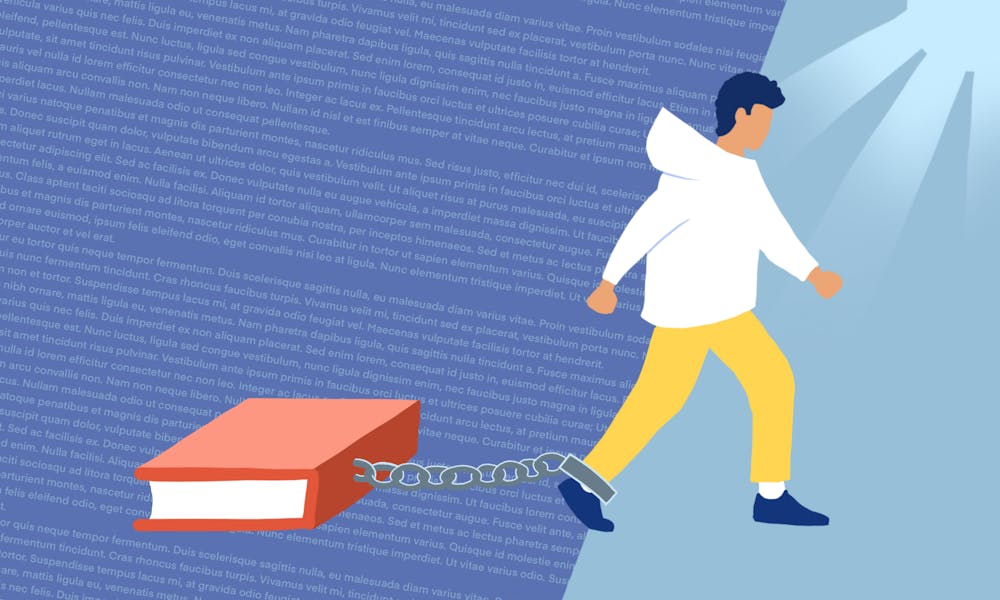
Historically, Penn students have looked to breaks as times of relaxation. This year, however, not all students have been able to truly enjoy their time off. This past fall break, numerous students reported that assignments, exams, and papers with due dates just after the break have prevented them from properly taking advantage of their class-free schedule, instead being bogged down in academics.
These breaks aren't just days off; they allow for physical and mental health restoration and visits to family members and friends. To ensure students are able to properly take advantage of their time off, Professors should move exams, projects, and other deliverables away from the days after breaks. Specifically, they should allot a full week after breaks for students to complete assignments and study for exams.
Giving students a week away from assignments, and thus strengthening the impact of breaks, has a plethora of benefits. First, breaks, such as fall break, Thanksgiving break, and spring break, provide students with time to internally recharge. On a campus where students often report issues with sleep and stress, such time is all the more important. Furthermore, avoiding stress during fall break can benefit students' academic performances; research has shown that mental health obstacles can interfere with performance in the classroom.
The benefits of fall break go beyond restoring students' mental and physical health. The nature of fall break, where students don't have scheduled obligations, means it can and should serve as time to see family members. One student reported that an economics midterm shortly after the break's conclusion prevented her from seeing her grandfather, who had recently been diagnosed with cancer. Instead, she spent her break studying. Other students have reported similar reductions in the amount of time available to see family members in light of academic workloads.
Some may argue that the onus is on Penn's administration, not professors, to reduce student stress by increasing breaks. Certainly, there is room to debate this. However, the University has consistently argued that increasing the length of breaks is impossible in light of Pennsylvania's stringent laws regarding the amount of time students may spend in the classroom. While there are possible workarounds to this, such as slightly shortening summer break in favor of extended intra-semester ones, the University has shown no signs of changing the length of the school year.
While Penn is unlikely to lengthen the number of days available for break, the University can and should enforce a grace period before and after them, giving students ample time to complete assignments and study for exams. Doing so would put the University in line with Chief Wellness Officer Benoit Dubé, who before fall break said, "I hope you are able to take time to rest, reset, and prioritize your self-care."
Breaks are meaningless if students aren't able to enjoy them properly. Given that Penn students only get one or two per semester, Professors should allow students to enjoy the time off they have and avoid giving assignments and exams that interfere with allotted breaks.
Editorials represent the majority view of members of The Daily Pennsylvanian, Inc. Editorial Board, which meets regularly to discuss issues relevant to Penn's campus. Participants in these meetings are not involved in the reporting of articles on related topics.
The Daily Pennsylvanian is an independent, student-run newspaper. Please consider making a donation to support the coverage that shapes the University. Your generosity ensures a future of strong journalism at Penn.
Donate






